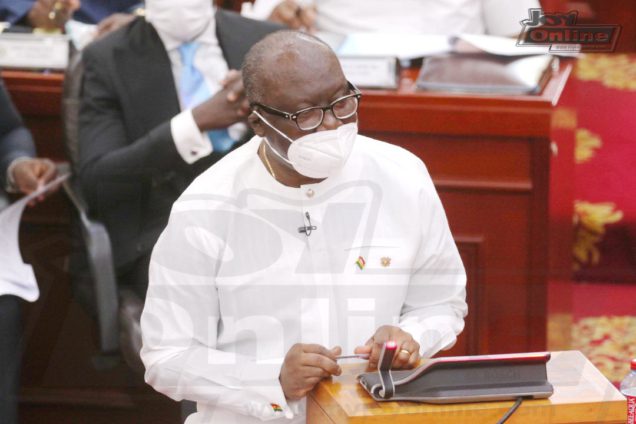Government is considering the reintroduction of the Electronic Transaction Levy percentage charge from 1.75 % to 1.5%.
This comes after the Deputy Majority Leader, Alexander Afenyo-Markin revealed that the Finance Minister, Ken Ofori-Atta, will withdraw the controversial E-levy in Parliament and re-introduce same.
Mr Markin made this known whiles presenting the business statement for next week to the House.
He said the e-levy will be withdrawn by government on Tuesday February 15, 2022.
He also noted that it will further be reintroduced after it has been reviewed on Friday, February 18, 2022.
Members of Parliament were however encouraged to “participate fully in the consideration of the Bill for the passing of a good piece of legislation for the benefit of all.”
Earlier, government had hoped to get the buy-in of the NDC MPs for the Bill to be passed.
This was after telecommunication companies agreed to reduce their 1% charge on transactions by 0.25%.
If this was upheld, the rate would be reduced from 1.75% levy to 1.5%.
But it was rejected by the Minority.
About E-levy
Finance Minister Ken Ofori-Atta, presenting the 2022 budget on Wednesday, November 17, announced that the government intends to introduce an Electronic Transaction Levy (e-levy).
The levy, he revealed, is being introduced to “widen the tax net and rope in the informal sector”. This followed a previous announcement that the government intends to halt the collection of road tolls.
The proposed levy, which was expected to come into effect in January, 2022, is a charge of 1.75% on the value of electronic transactions. It covers mobile money payments, bank transfers, merchant payments, and inward remittances. There is an exemption for transactions up to GH¢100 per day.
Explaining the government’s decision, the Finance Minister revealed that the total digital transactions for 2020 were estimated to be over GH¢500 billion (about $81 billion) compared to GH¢78 billion ($12.5 billion) in 2016. Thus, the need to widen the tax net to include the informal sector.
Although the government has argued that it is an innovative way to generate revenue, scores of citizens and stakeholders expressed varied sentiments on its appropriateness with many standing firmly against it.
Even though others have argued in support of the levy, a section of the populace believe that the 1.75% e-levy is an insensitive tax policy that will deepen the already prevailing hardship in the country.
Latest Stories
-
9 killed in Russian strike on civilian bus in Ukraine
19 minutes -
Five dead after tornado tears through St Louis
23 minutes -
Real Madrid confirm Dean Huijsen signing from Bournemouth
39 minutes -
Delegates walk out of FIFA congress after Infantino arrives late from Trump trip
58 minutes -
Mahama must seek legislative backing for Code of Conduct – Ahiagbah
1 hour -
John-Paul Adjadeh: The visionary behind Ghana’s Premier alumni games
2 hours -
Israel launches major offensive to ‘seize and control’ areas of Gaza
2 hours -
32 youth receive business starter packs from Ghana Grows
2 hours -
NSA Boss visits reptile-breeding Azumah Nelson Youth Centre
2 hours -
It is unfair to blame gov’t for power crisis – Prof Sharif Khalid
2 hours -
Unpredictable cedi appreciation could hurt businesses – Kenneth Thompson warns
2 hours -
Cedi appreciation: We must build reserves that allow long-term predictability – Prof Bopkin
2 hours -
Nine reported killed in Russian strike on civilian bus in Ukraine
3 hours -
Inaction is the main cause of challenge in power sector – Ing. Amissah-Arthur
3 hours -
Ghana’s marine economy: A strategic choice between fishing and coastal tourism
3 hours

